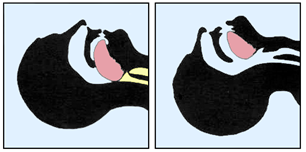Introduction | How to help? | Precautions | Causes of Breathing Problems
Breathing problems are gaining ground and becoming frequent due to faulty habits, allergies and pollution. As compared to the road accidents and diabetes mellitus, people are suffering more from Respiratory Infections and Chronic Obstructive Pulmonary Disease.
Breathing Difficulties can range from:
- Short of breath
- Unable to take a deep breath and gasping for air
- Feeling of not getting enough air
Fight Against Covid 19 - Try our newly added iHealth COVID-19 Antigen Rapid Test Kit
How to help someone with Breathing Difficulties?
If you see anyone having trouble in breathing, immediately call 911 and follow these guidelines:
- Check the breathing rate and pulse of the person. If needed then begin CPR.
- Relax the person and loosen the tight clothing.
- The person might be having a prescribed asthma inhaler or any other equipment in the bag or nearby. Quickly reach and let the person use it.
- If you see any open wound on neck or chest and you can see air bubbles appearing, immediately bandage the wound for once till the help arrives.
- Continuously monitor the person’s breathing even if the condition seems improving.
- If you find a person fainted, immediately lift from the back of the neck. This will ensure that tongue won’t chock the throat.
What should you avoid in Breathing Emergency?
- Do not assume that the person's condition is improving. Let the health care professionals give a clean chit.
- Do not give the person anything to eat or drink.
- Unless it is absolutely necessary, do not shift the position of the person if chest or airway injury is confirmed.
- Do not put a pillow or any other material to support the head. Lifting the head upwards can close the airway.
- Call emergency immediately in spite of assuming the person's condition to improve.
Most common causes of Breathing Problems
Common causes that may lead to breathing problems are:
- Heart disease
- Anemia
- Asthma
- Chronic obstructive pulmonary disease
- Lung cancer
- Respiratory infections like pneumonia, bronchitis, etc
- High altitude
- Collapsed lung (pneumothorax)
- Injury to the neck, chest wall, or lungs
As soon as the emergency team arrives, inform them in detail about the first aid you have given along with the condition of the person you found them in. Do not give any medicine of your own.
Disclaimer: All content found on our website, including images, videos, infographics and text were created solely for informational purposes. Our content should never be used for the purpose of diagnosis or treatment of any medical conditions. Content shared on our websites is not meant to be used as a substitute for advice from a certified medical professional. Reliance on the information provided on our website as a basis for patient treatment is solely at your own risk. We urge all our customers to always consult a physician or a certified medical professional before trying or using a new medical product.


